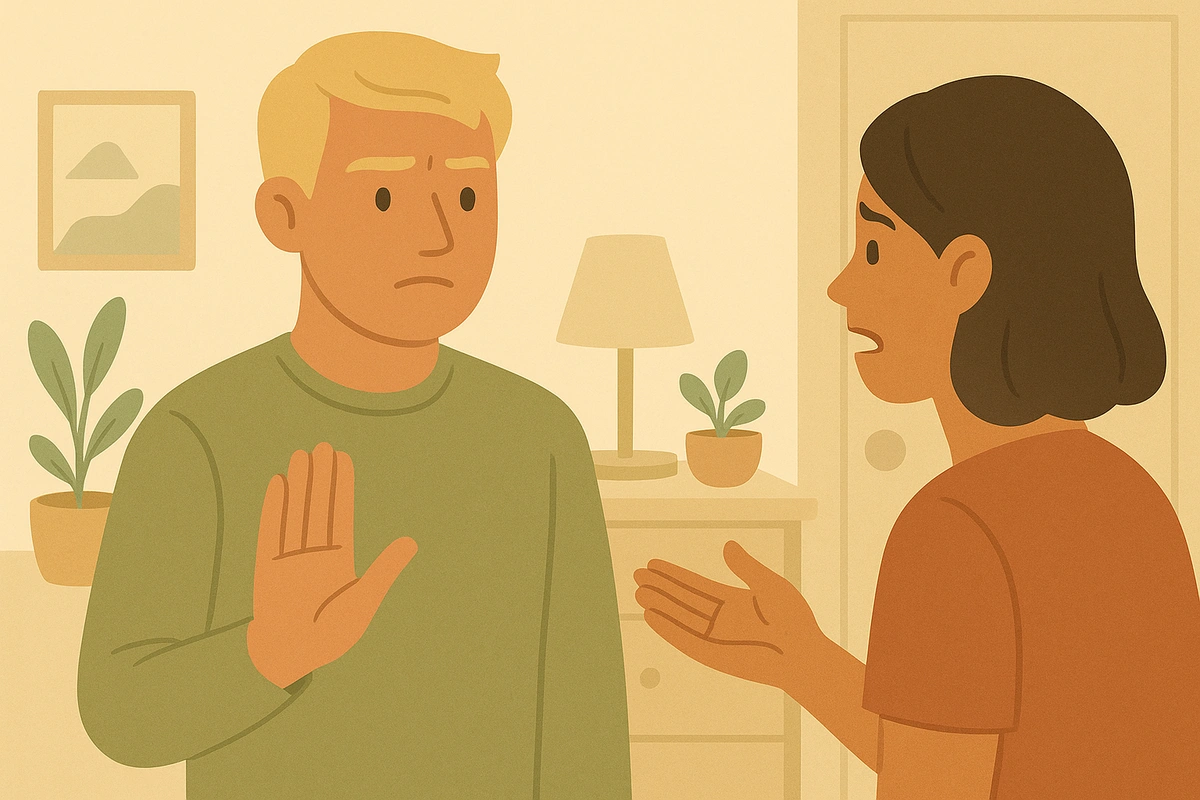Saying no without guilt is a powerful boundary-setting skill that protects your mental energy while creating authentic relationships built on mutual respect rather than obligation. This essential practice transforms people-pleasing patterns into confident decision-making that honors both your needs and others' dignity.

Setting boundaries by saying no without guilt involves clearly and kindly declining requests that don't align with your priorities or capacity. This essential life skill helps you avoid overcommitment, reduce stress, and maintain authentic relationships built on mutual respect rather than obligation.
Your natural desire to help others and maintain positive relationships can sometimes work against your own well-being when you struggle to decline requests. Many people feel trapped between disappointing others and sacrificing their own needs, leading to resentment, burnout, and strained relationships. Learning to say no with confidence creates space for what truly matters while actually strengthening your connections with others.
Setting boundaries through saying no works by protecting your psychological resources and preventing the internal conflict that arises when your actions don't match your values or capacity. Assertive communication creates mutual respect because it demonstrates that you value both your own needs and the other person's right to make requests.
When you consistently say yes despite wanting to say no, your brain experiences what psychologists call cognitive dissonance - the uncomfortable tension between conflicting beliefs and behaviors. This internal stress contributes to anxiety, resentment, and emotional exhaustion. Clear boundary-setting reduces this psychological burden by aligning your actions with your authentic needs and priorities.
The respectful, direct communication style involved in assertive boundary-setting activates your prefrontal cortex - the brain region responsible for executive decision-making and emotional regulation. This neurological shift helps you respond thoughtfully rather than react impulsively to requests and social pressure.
Assertiveness training research shows that people who learn to decline requests respectfully experience reduced anxiety and depression while maintaining better relationships. This happens because assertive behavior creates authentic connections based on honest communication rather than obligation or fear.
Self-compassion research demonstrates that treating yourself kindly after setting boundaries reduces guilt and shame more effectively than self-criticism. When you practice self-compassion around boundary-setting, you're more likely to maintain these healthy limits consistently over time.
The technique works because it replaces the people-pleasing pattern with what researchers call "enlightened self-interest" - taking care of your own needs so you can show up authentically and sustainably for others. This shift from reactive compliance to conscious choice-making builds self-respect and earns genuine respect from others.
"I feel too guilty to maintain my boundaries" - This guilt is normal and often reflects learned patterns rather than genuine moral concerns. Practice self-compassion by treating yourself with the same kindness you'd show a friend learning this skill. The guilt typically decreases with consistent practice.
"People get angry or upset when I say no" - Some people will react negatively to boundaries, especially if they're used to you always saying yes. Their reaction doesn't make your boundary wrong - it often indicates the boundary was needed. Stay calm and consistent.
"I don't know how to say no without being mean" - Focus on being clear and kind rather than apologetic. Use warm but firm language like "I appreciate you thinking of me, and I'm not able to help with this." Assertive communication is actually more respectful than reluctant agreement.
"I'm afraid of damaging important relationships" - Healthy relationships actually improve with honest communication and clear boundaries. If a relationship is damaged by respectful limit-setting, it may not have been as healthy as it appeared.
"I feel selfish for putting my needs first" - Research shows that self-care isn't selfish - it's necessary for maintaining the energy and emotional resources to care for others sustainably. Taking care of yourself models healthy behavior for others.
"I automatically say yes before I can think" - Practice slowing down your response time. Train yourself to say "Let me check my calendar" or "I need to think about that" as automatic responses, giving you space to make conscious decisions.